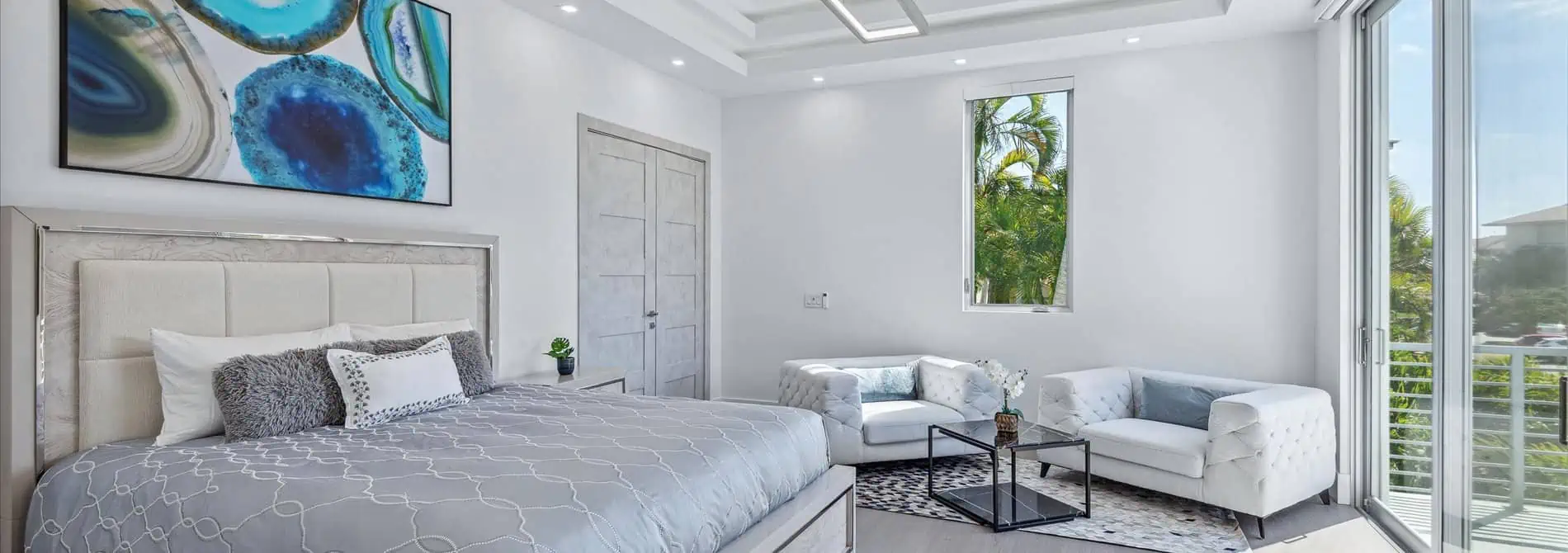Depression Treatment & Recovery

Depression
More than just feeling a little down or having the blues, depression is a serious mood disorder affecting every aspect of how you handle daily activities. It affects how we think and feel and is the most common mental illness in the U.S. It isn’t a moral failure or sign of weakness to be depressed and shifting out of it on your own is not that easy. This mood disorder is severe and may require long-term treatment and support. When it co-occurs with addiction, it is imperative that you seek help so that both disorders can be treated at the same time. Clinical depression or major depressive disorder are other terms you may hear.
Signs and Symptoms
Experiencing signs of depressive disorders from this list nearly every day for at least two weeks suggests you may be suffering from depression:
- Fatigue or decreased energy
- Restlessness
- Difficulty concentrating or making decisions
- Trouble sleeping
- Changes in appetite or weight
- Thoughts of suicide or suicide attempts
- Persistent sad or “empty” mood
- Hopelessness, worthlessness, or helplessness
- Irritability
- Chronic pain or headaches
- Substance use or addiction
- Unexplained physical aches
- Feelings of guilt
- Loss of interest in hobbies and activities
Some report only a few symptoms of depressive disorders, while others experience many challenges. Depending on the diagnosis, the duration, severity, and frequency of symptoms vary.
Mental Health Disorders
When to Get Emergency Help
If you or a loved one is in danger of suicide or has made a suicide attempt, please get help. Someone should stay with the person at risk. Call 911 immediately or if you can do so safely, head to the nearest hospital emergency room. In the U.S., you can call the National Suicide Prevention Lifeline at 1-800-273-TALK 1-800-273-8255.
Depression in Midlife Adults
- Poor work performance or attendance
- Unhealthy or risky behaviors
- Violent or abusive behavior
- More recreational drug or alcohol use
- Anger management issues
Depression in Older Adults
The chances we will experience depression increases with our age. In midlife and beyond, it can co-occur with addiction and other serious medical illnesses such as heart disease and diabetes, further aggravating these medical conditions. For older adults, it is one of the three most common mental health conditions. In older adults, signs of depression may be less obvious such as:
- Memory difficulties or personality changes
- Chronic pain
- Generalized fatigue
- Loss of appetite
- Sleep problems unrelated to a medical condition or medication
- Staying at home rather than socializing or trying new things
- Having suicidal thoughts or feelings (older men are at higher risk)
General Risk Factors for Depression
A combination of genetic, biological, environmental, and psychological factors can contribute to the chance of developing depressive disorders, including:
- Personal or family history of diagnoses
- Certain physical illnesses and medications
- Major life changes
- Trauma
- Increased stress
- Certain physical illnesses and medications
Comprehensive Care
Headwaters provides comprehensive care for executive and high-net-worth individuals of all ages. Clients work with qualified mental health professionals to devise a comprehensive treatment plan that assesses the wellness of the body, mind, and spirit. A primary physician, psychiatrist, counseling, and psychology professionals assess what is best for each client. Medication, therapies, physical activity, and chronic pain management, round out each recovery plan.
Treatment and Therapies
The earlier treatment for depression can begin, the more effective as even the most severe cases of this mood disorder can be treated successfully. Therapy, medications, psychological interventions, and modalities for those with the co-occurring disorder of addiction are critical.
Medications
Psychiatric care delivered by medical professionals includes appropriate diagnosis and treatment of depression and proper medication management. Antidepressants control the way your brain uses certain chemicals that influence mood or stress. They take time to work, so be sure to give your medication a chance before determining if it is the right one for your condition. Your physician may need to prescribe a few different antidepressant medicines before finding the best one for your body.

The Importance of Residential Treatment
Residential addiction treatment such as what is offered at Headwaters can be extremely beneficial for people struggling to recover from this condition. Residential treatment can reduce the risk of relapse as medications are tested, counseling is initiated, and solution-oriented interventions are applied. At the same time, the wellness of your body, mind, and spirit can be explored and addressed in a safe, nurturing environment with excellent nutrition and supportive counseling.
Headwaters Center for Brain Recovery (CBR)
- Psychological testing and review
- Meditation and mindfulness training
- Individual and group psychotherapy
- Biofeedback
- Neurotherapy
- Neurofeedback
- Cognitive-behavioral therapy (CBT)
- Motivational interviewing (MI)
- Dialectical behavioral therapy (DBT)
Continuing Care Sets the Stage for Long-term Success
The Headwaters Team includes Continuing Care Specialists who work alongside our multidisciplinary professionals from the onset of a client’s stay. These professionals help develop a clear and specific plan for lifelong care after primary treatment concludes. This continued care should include individualized recommendations for recovery that examine a person’s diagnosis and experience during treatment.
Continuing care recommendations at Headwaters may include:
- Medication management
- Ongoing counseling to support success
- Intensive outclient programming
- Transitional living
- Exercise and other wellness activities
- 12-Step support groups and fellowship
- Alumni services

We’re Here to Help You Recover
Headwaters recognizes that co-occurring depressive disorders and substance use disorders are interrelated and require simultaneous treatment to achieve psychological, physical, and spiritual recovery.
Call Headwaters today at 561-270-1753.
West Palm Beach, FL 33407
Follow Us On:

